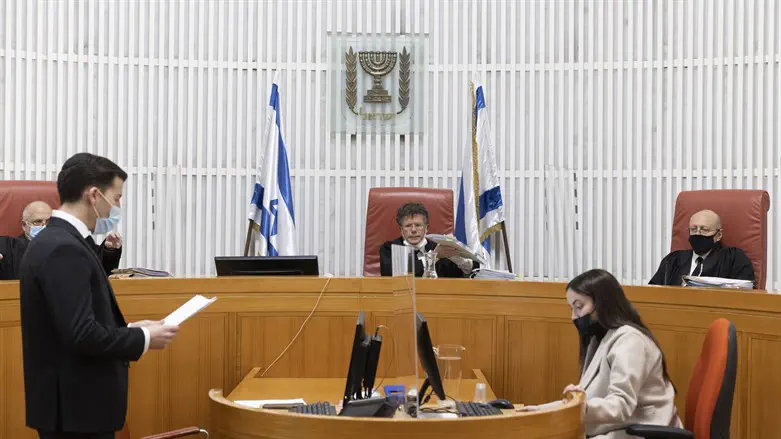
A compromise proposal has been submitted on the issue of the Judicial Selection Committee, one of the most controversial aspects of the government's planned judicial reforms, Kan Reshet Bet reported this morning (Sunday).
Negotiations between the coalition and opposition on the judicial reforms continue at the President's Residence in Jerusalem under the auspices of President Isaac Herzog.
Under the current system, the Supreme Court and the judicial system have an outsized influence over the selection of future justices, a system which allows the justices to select their successors with little democratic input. The reforms proposed by Justice Minister Yariv Levin would give the executive branch greater say over the selection of justices in a manner more consistent with the manner in which justices are appointed in the US. Opponents of the reform warn that giving politicians the power to select would politicize the courts and jeopardize their independence.
Under the compromise proposal, neither justices nor politicians will serve on the judicial selection committee. Instead, the politicians and judges will choose their own representatives to the committee, according to certain criteria. However, the coalition will still get to choose the majority of representatives on the committee.
According to the proposal, the coalition and the opposition will be able to choose committee members from different categories - academics, researchers, retired judges, senior lawyers, etc. And the judges will also be able to choose committee members from those categories.
One issue which remains in contention is whether the coalition would be able to select more representatives for the Judicial Selection Committee than the opposition. The representatives would remain on the committee for a certain time and therefore not remain beholden to those who selected them. In this way, the influence of politicians and of the sitting justices on the committee's decisions would be indirect.
